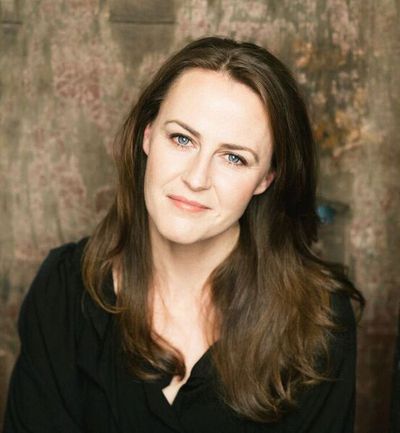The winner of The Readings Prize for New Australian Fiction in 2016 is Music and Freedom by Zoë Morrison.
The Readings Prize was launched in 2014, with the aim of supporting new and emerging Australian authors. It is unique in the Australian literary prize landscape as it is the only significant prize to be managed entirely by a bookshop, and it considers both first and second works of fiction by Australian authors – a point of difference that is important to Readings, as many authors often struggle to find traction with their second novel or collection of short stories. Indeed, the first two winners of the Prize – Only the Animals by Ceridwen Dovey (2014) and The Other Side of the World by Stephanie Bishop (2015) – were second books.
Music and Freedom was chosen as the winner of this year’s Prize by a judging panel comprising six Readings staff members (Christine Gordon, Tom Hoskins, Alison Huber, Nina Kenwood, Simon McLean and Mark Rubbo) and a guest judge, Maxine Beneba Clarke. Beneba Clarke is the author of the acclaimed work of short fiction, Foreign Soil (which was shortlisted for The Readings Prize in 2014), several volumes of poetry, a forthcoming children’s book and her newly released memoir, The Hate Race.
Music and Freedom is Morrison’s first novel. Set over a period of 70 years, it is a profound and moving portrait of one woman’s life, ranging from rural Australia in the 1930s to England in the modern day. In the tradition of Anne Tyler, Elizabeth Strout and Ann Patchett, Music and Freedom digs deeply into the marriage, relationships and ambitions of its central protagonist, Alice. The novel examines what it means to suffer regret and heartbreak, to make difficult choices and live with the consequences, and to find hope and passion in your darkest hour.
Guest judge Maxine Beneba Clarke says, ‘Exploring themes of love, loneliness, and the price of artistic expression, Music and Freedom is an ambitious and considered debut novel. Morrison’s characters are vividly drawn, and their relationships portrayed with exquisite sensitivity. The novel is engaging and structurally sound. Morrison writes about sound and music with a joy and poetry even the unmusical can appreciate – providing a stunning and heartfelt counter to the dark relationship that forms between the two main characters. Music and Freedom is challenging, stylistically sure, accomplished, and consistent. Above all though, it is simply a good story, beautifully written.’
The Prize judges were united in considering the novel a sophisticated and intelligent work of fiction that demonstrated the author’s keen eye for detail and her extraordinary ability to write about classical music. The judges felt the novel to be deserving of a wide readership, both within Australia and overseas. Mark Rubbo, managing director of Readings, described Music and Freedom as a ‘stimulating, thought-provoking and immensely satisfying book’.
As the winner of the Prize, Morrison was awarded $4,000 in prize money. She says of the Prize, ‘The shortlist for this year’s Readings Prize was formidable – all deserving of a wide audience. To be named the winner is an enormous honour and I am deeply grateful. As a debut novelist, this recognition and support makes an extraordinary difference.’

Photograph by Nicholas Purcell Studio
‘Readings is an outstanding supporter of Australian fiction. It is also a cultural force in our community. Its shelves offer a curation of the most wonderful books and stories. My book contains the story of a woman who is subjugated and silenced but regains her freedom and voice in later life. To acknowledge her story in this way is like amplification – it’s magnificent. Readings – thank you so much.’
Alongside Music and Freedom, the shortlist for this year’s Prize included Portable Curiosities by Julie Koh, The High Places by Fiona McFarlane, Wood Green by Sean Rabin, Ruins by Rajith Savanadasa, and Salt Creek by Lucy Treloar. Beneba Clarke observed that, ‘together, these books show what the future of Australian fiction will look like: bright, challenging, ambitious, eloquent, diverse and daring. I look forward to being a part of it.’


